From Whitewater to Benghazi: A Clinton Scandal Primer By David Graham
http://www.theatlantic.com/politics/archive/2015/08/tracking-the-clinton-controversies-from-whitewater-to-benghazi/396182/
The former secretary of state turns over her private server to the Justice Department after investigators discover top-secret emails on it.The investigation into Hillary Clinton’s emails is heating up.
The saga began with Representative Trey Gowdy’s select committee on Benghazi. Those investigations led to the public revelation that the former secretary of state had maintained a private email server, and produced a court order to release the emails in 30-day tranches. Clinton says she neither sent nor received any classified information on the account, but that some material has since been classified.
On Tuesday, federal investigators told members of Congress in a letter that two highly classified emails had been found on Clinton’s personal email system. In response, Clinton’s attorney turned over the server to the FBI, along with thumb drives containing thousands of emails that had previously been turned over to the State Department, The Washington Post reports.
The email controversy is quickly turning into a classic Clinton scandal. Her use of a private email account became known during the course of an investigation into the 2012 deaths of U.S. personnel in Benghazi, Libya. Thus far, the investigations have found no wrongdoing on her part with respect to Benghazi, but Clinton’s private-email use and now the referral concerning classified information have become stories unto themselves. This is something of a pattern with the Clinton family, which has been in the public spotlight since Bill Clinton’s first run for office, in 1974: Something that appears potentially scandalous on its face turns out to be innocuous, but an investigation into it reveals other questionable behavior. The classic case is Whitewater, a failed real-estate investment Bill and Hillary Clinton made in 1978. While no inquiry ever produced evidence of wrongdoing, investigations ultimately led to President Clinton’s impeachment for perjury and obstruction of justice.
With Hillary Clinton leading the field for the Democratic nomination for president, every Clinton scandal—from Whitewater to Clinton’s State Department emails—will be under the microscope. (No other American politicians—even ones as corrupt as Richard Nixon, or as hated by partisans as George W. Bush—has fostered the creation of a permanent multimillion-dollar cottage industry devoted to attacking them.) Keeping track of each controversy, where it came from, and how serious it is, is no small task, so here’s a primer. We’ll update it as new information emerges.
Clinton’s State Department Emails
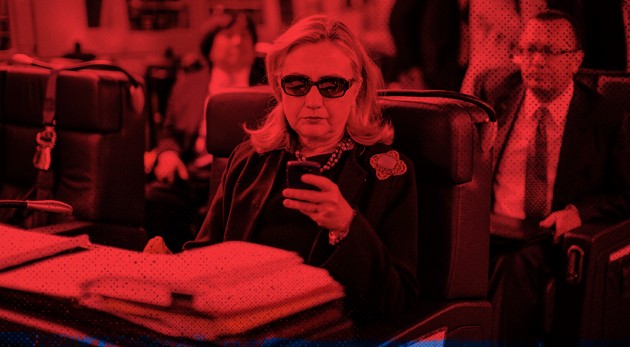
What? Setting aside the question of the Clintons’ private email server, what’s in the emails that Clinton did turn over to State? While some of the emails related to Benghazi have been released, there are plenty of others covered by public-records laws that haven’t.
When? 2009-2013
How serious is it? Moderately. The fact that Clinton sorted her own emails would seem to offer some inoculation. But a federal judge’s ruling that the State Department must release new batches of cleared emails every 30 days means there will be a monthly cycle of reporters digging into the cache—bad news for a candidate who’d rather put it behind her. Plus there have already been some strange revelations, like the fact former Clinton confidant Sidney Blumenthal was advising her on Libya and a wide range of matters, and may have been the source of initial, misleading ideas the Benghazi attacks were spontaneous mob violence.

What? On September 11, 2012, attackers overran a U.S. consulate in Benghazi, Libya, killing Ambassador Chris Stevens and three other Americans. Since then, Republicans have charged that Hillary Clinton failed to adequately protect U.S. installations or that she attempted to spin the attacks as spontaneous when she knew they were planned terrorist operations.
When? September 11, 2012-present
How serious is it? Benghazi has gradually turned into a classic “it’s not the crime, it’s the coverup” scenario. Only the fringes argue, at this point, that Clinton deliberately withheld aid. A House committee continues to investigate the killings and aftermath. But it was through the Benghazi investigations that Hillary Clinton’s use of a private email server became public—a controversy that remains potent.
The Clintons’ Private Email Server
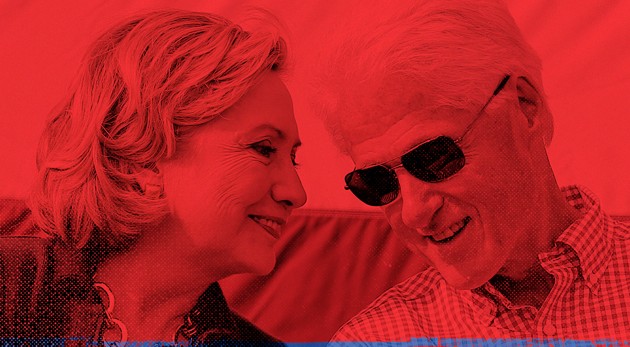
What? During the course of the Benghazi investigation, New York Times reporter Michael Schmidt learned Clinton had used a personal email account while secretary of state. It turned out she had also been using a private server, located at a house in New York. The result was that Clinton and her staff decided which emails to turn over to the State Department as public records and which to withhold; they say they then destroyed the ones they had designated as personal.
When? 2009-2013, during Clinton’s term as secretary.
Who? Hillary Clinton; Bill Clinton; top aides including Huma Abedin
How serious is it? The rules governing use of personal emails are murky, and Clinton aides insist she followed all rules. There’s no evidence at this point that proves otherwise. The greater political problem for Clinton is it raises questions about how she selected the emails she turned over and what was in the ones she deleted. Are those emails truly deleted? Could the server have been hacked? Some of the emails she received on her personal account are marked sensitive. Plus there’s a entirely different set of questions about Clinton’s State Department emails. The FBI is investigating the security of the server as well as the safety of a thumb drive belonging to her lawyer that contains copies of her emails.
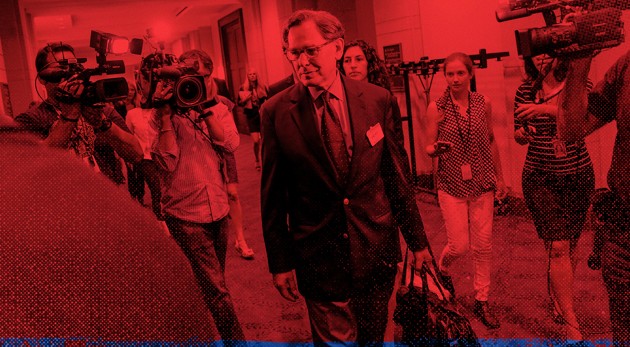
What? A former journalist, Blumenthal was a top aide in the second term of the Bill Clinton administration and helped on messaging during the bad old days. He served as an adviser to Hillary Clinton’s 2008 presidential campaign, and when she took over the State Department, she sought to hire Blumenthal. Obama aides, apparently still smarting over his role in attacks on candidate Obama, refused the request, so Clinton just sought out his counsel informally. At the same time, Blumenthal was drawing a check from the Clinton Foundation.
When? 2009-2013
How serious is it? Some of the damage is already done. Blumenthal was apparently the source of the idea that the Benghazi attacks were spontaneous, a notion that proved incorrect and provided a political bludgeon against Clinton and Obama. He also advised the secretary on a wide range of other issues, from Northern Ireland to China. But emails released so far show even Clinton’s top foreign-policy guru, Jake Sullivan, rejecting Blumenthal’s analysis, raising questions about her judgment in trusting him.
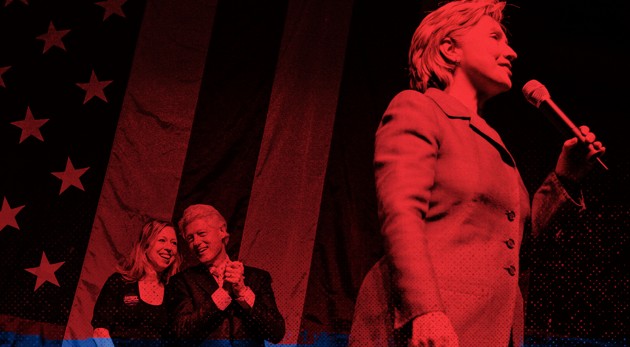
What? Since Bill Clinton left the White House in 2001, both Clintons have made millions of dollars for giving speeches.
When? 2001-present
Who? Hillary Clinton; Bill Clinton; Chelsea Clinton
How serious is it? This might be the most potent of all the current Clinton scandals. For the couple, who left the White House up to their ears in legal debt, lucrative speeches—mostly by the former president—proved to be an effective way of rebuilding wealth. They have also been an effective magnet for prying questions. Where did Bill, Hillary, and Chelsea Clinton speak? How did they decide how much to charge? What did they say? How did they decide which speeches would be given on behalf of the Clinton Foundation, with fees going to the charity, and which would be treated as personal income? Are there cases of conflicts of interest or quid pro quos—for example, speaking gigs for Bill Clinton on behalf of clients who had business before the State Department?
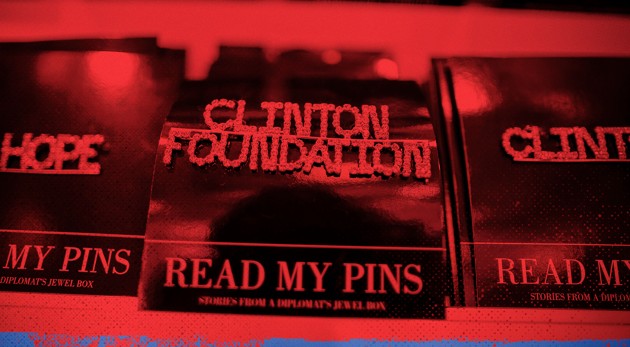
What? Bill Clinton’s foundation was actually established in 1997, but after leaving the White House it became his primary vehicle for … well, everything. With projects ranging from public health to elephant-poaching protection and small-business assistance to child development, the foundation is a huge global player with several prominent offshoots. In 2013, following Hillary Clinton’s departure as secretary of State, it was renamed the Bill, Hillary, and Chelsea Clinton Foundation.
Who? Bill Clinton; Hillary Clinton; Chelsea Clinton, etc.
How serious is it? If the Clinton Foundation’s strength is President Clinton’s endless intellectual omnivorousness, its weakness is the distractibility and lack of interest in detail that sometimes come with it. On a philanthropic level, the foundation gets decent ratings from outside review groups, though critics charge that it’s too diffuse to do much good, that the money has not always achieved what it was intended to, and that in some cases the money doesn’t seem to have achieved its intended purpose. The foundation made errors in its tax returns it has to correct. Overall, however, the essential questions about the Clinton Foundation come down to two, related issues. The first is the seemingly unavoidable conflicts of interest: How did the Clintons’ charitable work intersect with their for-profit speeches? How did their speeches intersect with Hillary Clinton’s work at the State Department? Were there quid-pro-quos involving U.S. policy? The second, connected question is about disclosure. When Clinton became secretary, she agreed that the foundation would make certain disclosures, which it’s now clear it didn’t always do. And the looming questions about Clinton’s State Department emails make it harder to answer those questions.
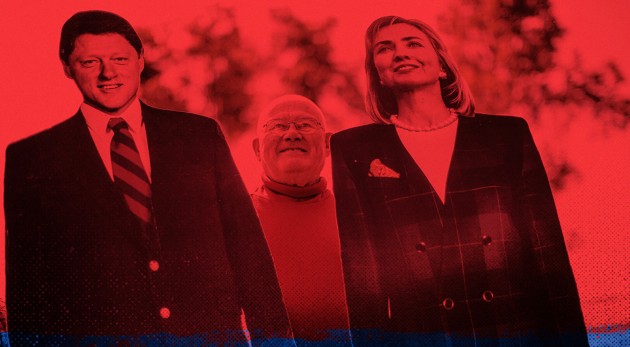
What is it? Since the Clintons have a long history of controversies, there are any number of past scandals that continue to float around, especially in conservative media: Whitewater. Troopergate. Paula Jones. Monica Lewinsky. Vince Foster.
When? 1975-2001
Who? Bill Clinton; Hillary Clinton; a brigade of supporting characters
How serious is it? Not terribly. Some are wholly spurious (Foster). Others (Lewinsky, Whitewater) have been so exhaustively investigated it’s hard to imagine them doing much further damage to Hillary Clinton’s standing. In fact, the Lewinsky scandal famously boosted her public approval ratings. But that doesn’t mean you won’t hear plenty about them.
Comments are closed.
